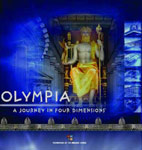
"Throughout history, invasions and conquests have played a remarkable role in shaping our world and defining our boundaries, both physically and culturally.
Updated through 2006, this brand new second edition of the popular Encyclopedia of Invasions & Conquests is a comprehensive guide to over 150 invasions, conquests, battles and occupations, from the ancient times to the present. With brand new articles on the Coalition Invasion of Iraq, the Serbian Invasion of Bosnia-Herzegovina, the Soviet & UN's Invasions of Afghanistan, this text offers complete coverage of the most current invasions and those dating back to the earliest times. Plus, a brand new Historical Timeline has been added along with over 70 brand new Maps.
Categories of entries include countries, invasions and conquests, and individuals. In addition to covering the military aspects of invasions and conquests, entries cover some of the political, economic, and cultural aspects, for example, the effects of a conquest on the invading country's political and monetary system and in its language and religion. The entries on leaders -- among them Sargon, Alexander the Great, William the Conqueror, and Adolf Hitler -- deal with the people who sought to gain control, expand power, or exert religious or political influence over others through military means.
Revised and updated for this second edition, entries are arranged alphabetically within historical periods. Each chapter provides a map to help readers locate key areas and geographical features, and bibliographical references appear at the end of each entry. Other useful features include hundreds of Maps, cross-references, a cumulative bibliography and a comprehensive subject index."




